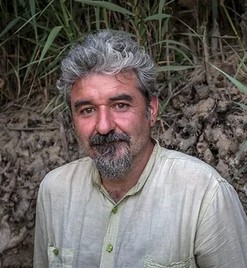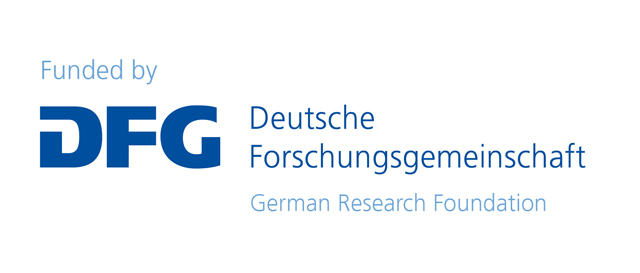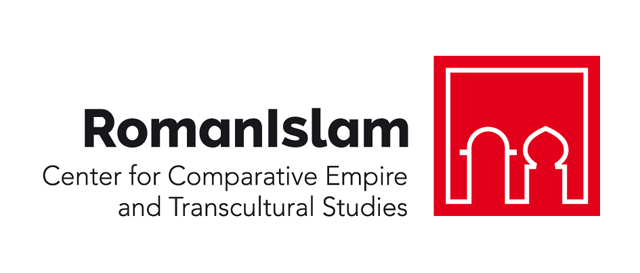Luxury of Water
"Still splashing waters: monumental fountains in Late Antique North Africa" by Nicolas Lamare
Fountains were remarkable buildings in ancient cities. First, their functional aspect as water suppliers made them essential to daily life. Then, under the Roman Empire, they gradually played a role in ornamenting public space and expressing political discourse that modified their architecture and appearance. By using both archaeological and epigraphic data, this paper aims to discuss the building, remodelling, restoration and abandonment of monumental fountains in Late Antique cities (4th-6th c.), but also the funding of these interventions. It demonstrates that monumental fountains were still an important feature of urban ornamentation that implied an effective operation of the water supply network.
 Prof. Dr. Nicolas Lamare is Associate Professor in Roman history and archaeology at the Université de Picardie in Amiens, France, since 2021. His research focuses on urbanism in Ancient North Africa, from the Early Roman Empire up to Late Antiquity, with a specific focus on water supply and monuments. He published his doctoral dissertation on monumental fountains as a book in 2019. Since 2022, he is co-directing the archaeological project in Sbeïtla, Tunisia.
Prof. Dr. Nicolas Lamare is Associate Professor in Roman history and archaeology at the Université de Picardie in Amiens, France, since 2021. His research focuses on urbanism in Ancient North Africa, from the Early Roman Empire up to Late Antiquity, with a specific focus on water supply and monuments. He published his doctoral dissertation on monumental fountains as a book in 2019. Since 2022, he is co-directing the archaeological project in Sbeïtla, Tunisia.
"Social significance of irrigated agriculture in al-Andalus and Western Mediterranean. Changes in landscapes and productive strategies from Late Antiquity to the Islamic period" by José Maria Martín Civantos
The impacts of hydraulic systems and irrigation on the Mediterranean basin have been historically of great importance. Technologies developed during Antiquity to guarantee water supply have been the object of many studies, mostly oriented towards their urban uses. In the agrarian sphere, the development of irrigation systems, predominantly during the Islamic period, has generated important debates regarding their origins and dissemination. However, the social importance of these productive systems, as the result of social choices and strategies, has frequently been overlooked. Additionally, the role of peasant communities and power in these choices and strategies has been interpreted in a contradictory manner. The lecture offers a critical overview of water management from Late Antiquity to the medieval Mediterranean, paying particular attention to the ways in which different environmental conditions and cultural developments have resulted in different solutions to deal with water in the past. These systems and knowledge are not only an essential part of our heritage, but also an important element of a sustainable future. Nevertheless they are threatened in the current context.
 Prof. Dr. José Maria Martín Civantos is Associate Professor in Medieval History and Archaeology at the University of Granada. Specialized on Islamic Archaeology and Landscape Archaeology. Responsible for the MEMOLab, Biocultural Archaeology Laboratory at the University of Granada (Spain). He is particularly interested on historical relationships between humans and nature and the use of natural resources for the creation of socio-ecological systems. He has worked mainly on historical and traditional irrigation systems still in use as examples of sustainability, resilience and governance. This effort has resulted not only in an academic research, but in an active advocacy for community and local authorities’ involvement in the protection, restoration and reuse of tangible and intangible heritage as strategy for local sustainability and socioeconomic development.
Prof. Dr. José Maria Martín Civantos is Associate Professor in Medieval History and Archaeology at the University of Granada. Specialized on Islamic Archaeology and Landscape Archaeology. Responsible for the MEMOLab, Biocultural Archaeology Laboratory at the University of Granada (Spain). He is particularly interested on historical relationships between humans and nature and the use of natural resources for the creation of socio-ecological systems. He has worked mainly on historical and traditional irrigation systems still in use as examples of sustainability, resilience and governance. This effort has resulted not only in an academic research, but in an active advocacy for community and local authorities’ involvement in the protection, restoration and reuse of tangible and intangible heritage as strategy for local sustainability and socioeconomic development.


